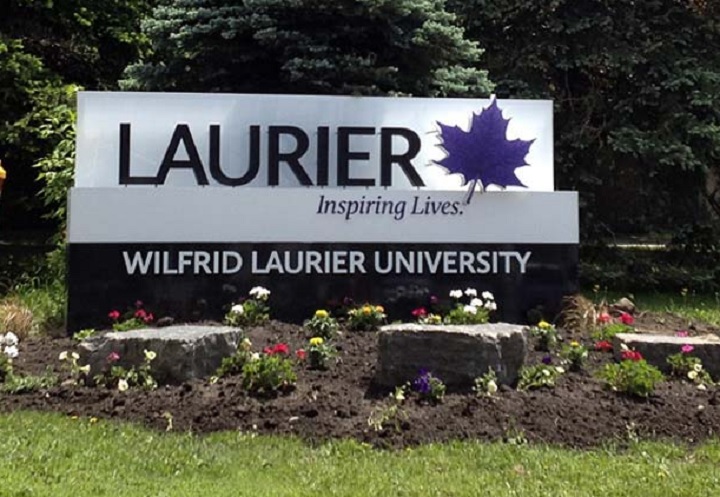TORONTO – An Ontario university that has raised eyebrows among those concerned with questions of academic freedom has engaged a third-party investigator to probe an incident involving one of its teaching assistants.

Lindsay Shepherd, a graduate student at Wilfrid Laurier University, said she ran afoul of school authorities after she aired a clip in two tutorials of a debate on gender-neutral pronouns featuring polarizing University of Toronto professor Jordan Peterson.
The excerpt from TVO’s current affairs program “The Agenda” shows Peterson, who has famously refused to use gender pronouns other than “he” or “she,” defending his position against a professor who argued it was necessary to use the pronouns that a person prefers to be called.
Shepherd said she was chastised by her superiors for failing to condemn Peterson’s remarks outright and told her neutral approach to the clip was tantamount to remaining neutral on other objectionable views such as those of Adolf Hitler.
The university would not confirm what was said to Shepherd, but said it had enlisted an unidentified “neutral third-party professional” to “gather the facts” of the situation.
READ MORE: Ontario college faculty reject latest contract offer, strike continues
For Shepherd, the incident has raised fundamental questions about the purpose of a post-secondary institution.
- Parole documents shed light on suspect charged with murder of U of T student
- Ford ‘confident’ Eglinton Crosstown LRT will open in early February
- Toronto mom whose baby drowned after leaving him unattended gets 3 years in prison
- Supreme Court to hear challenge of law allowing Ontario Place redevelopment
Silencing unpopular opinions is not true to the spirit of an institution that purports to encourage intellectual exploration, she said, adding that launching a third-party investigation only reinforces that impression.
“This was an opportunity for the university to be like ‘it’s true, we should be able to have a debate, we’re sorry it became an issue and we’re happy to foster debate in the university environment,”‘ she said. “Instead, they’re being weird about it.”

Get breaking National news
Shepherd said the lesson to her communications tutorial class was focusing on the complexities of grammar.
Shepherd said she was trying to demonstrate that the structure of a language can impact the society in which its spoken in ways people might not anticipate. To illustrate her point, she said she mentioned that long-standing views on gender had likely been shaped by the gender-specific pronouns that are part of English’s fundamental grammatical structure.
The clip of Peterson debating sexual diversity scholar Nicholas Matte, she said, was meant to demonstrate ways in which the existence of gender-specific pronouns has caused controversy.
Shepherd said a student complained about the clip, which she showed to two tutorials of roughly 24 participants each. In response, she said her supervisors censured her for airing the clips, told her she was “transphobic” for playing them and said she ought to have spoken out against the positions Peterson expressed during the excerpt.
She said she was permitted to keep her position so long as she agreed to file copies of her lesson plans in advance and allow faculty members to sit in on her sessions whenever they wished, constraints she said are not standard practice for Laurier.
She said the experience left her questioning the school’s commitment to academic freedom, a position Laurier maintains it upholds.
“Laurier is committed to fostering a learning environment that is open and challenging, protects academic freedom and freedom of expression, as well as being welcoming, supportive and respectful of human rights,” the school said in a statement.
“Supporting these values in a world that is changing and increasingly polarized is a challenge that Laurier welcomes and, along with many other universities, is working hard to address.”
Experts said the issue is indeed prevalent in many intellectual circles as people grapple with the meaning of terms like academic freedom.
Noa Mendelsohn Aviv, acting executive director of the Canadian Civil Liberties Association, said the term has become associated with a specific political faction, causing some to lose sight of its value across the spectrum.
“There are plenty of bigots, white supremacists, neo nazis who have claimed ‘freedom of expression’ for themselves and have made it difficult for people who value equality to say that ‘this is an important tool for democracy that we also hold dear,” she said.
“Anybody who knows anything about the history of the struggle for freedom knows that those freedoms have been won through … debate, through the expression of unpopular opinion.”
Katherine Fierlbeck, a political science professor at Dalhousie University in Halifax, agreed.
She said failure to encourage genuine debate in classrooms not only shortchanges students by leaving them without the skills to think critically in real-life debates, but may also drive those who feel their views are not welcome to seek out more receptive audiences, such as communities of online agitators or active proponents of hate.
Shepherd’s approach of neutrally presenting a debate to prompt further discussion was exemplary, she said, adding it was in keeping with the true spirit of academic freedom.
“Some … understand academic freedom to mean that they can say anything about anybody at any time, but that’s certainly not the case,” she said. “It has to be germane to your area, and there has to be a good reason offered for what you are doing.”
If those parameters are in place, however, Fierlbeck said professors are obliged to push new ideas and teach students to recognize poor logic or faulty premises. Failing to do so, she said, makes students censor themselves until they can present an opinion that’s in line with what they perceive to be acceptable.







Comments